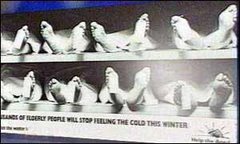
LIVERPOOL city council broke the Data Protection Act in the way it released details of private emails between former leader Mike Storey and the town hall’s top spin doctor, a government commissioner has ruled. Matt Finnegan, who resigned as assistant executive director for media after more than a year under suspension, took the case of the emails to the Information Commissioner’s Office. It was the latest skirmish in the long-running saga sparked as part of the public fall-out between Cllr Storey and former chief executive Sir David Henshaw. Last night, Mr Finnegan’s law-yer, Rex Makin said: “I made it clear when the emails were pub-lished that a contravention had taken place. The council’s res-ponse was opposite, and now the Commissioner has ruled I was correct. I think it flawed the disci-plinary proceedings the council was taking against Mr Finnegan.” Mr Finnegan, who headed the council’s news operation from Dale Street, was suspended and a council audit team, as part of a routine exercise, examined his computer and mobile phone. These revealed communications between Cllr Storey and Mr Finnegan relating to the future of Sir David. One of Sir David’s key officers, resources director Phil Halsall, sent a draft report to all 90 city councillors which contained full details of the exchanges of emails. The commissioner’s report says: “It is primarily the premature circulation of the detail contained within the draft report which raises concern.” Mr Halsall, in the draft report, included a covering letter stating the full findings of the investiga-tion had been published “some-what sooner than intended due to media interest generated by the existence of the report”. It then went on to say that, as the draft report also contained information which may lead to a disciplinary investigation, mem-bers were told to treat the details contained within the document as “strictly confidential”. “What is most pertinent is not the actual contents of the draft report but the untimely manner in which it was distributed,” said the commissioner’s officer. “It is clear the decision was taken to distribute the full contents of the draft report somewhat premature-ly in response to ‘media pressure’ which we believe was unfair (to Mr Finnegan). It is therefore our view that Liverpool City Council has breached the First Principle of the Data Protection Act 1998 in this instance. “Whilst it is acknowledged this is perhaps an extraordinary case in terms of the events which occurred and the high profile of individuals who were involved in the investigation, the disclosure, having been circulated at such a premature time, was still unfair. If the council felt it needed to res-pond to media pressure on the case, a summary of the necessary facts may have been sufficient.” The commissioner has now written to the city council advis-ing that the untimely manner in which the circulation of the Draft Report occurred could have had further consequences in that it may have compromised disci-plinary proceedings which might have subsequently followed. Although no action is proposed against the council by the ICO, Mr Finnegan now has the legal right to take court action against the council for their breach. Last night, Mr Finnegan said: “It has always been my contention that the city council broke the law by publishing confidential emails, and the ICO has now confirmed that the Data Protection Action was breached by them. “This is a small, if belated, victory for democracy and a vind-ication of my actions in obeying the leader of the council. If the council had any decency, it would now issue an abject public apol-ogy to me for acting illegally. But I won’t be holding my breath.” Mr Finnegan is now calling for the council to take legal action against Sir David Henshaw, chair of the North West Strategic Health Authority, for contravening the Data Protection Act and to suspend Mr Halsall, who is still employed by the council, pending a full investigation into his actions. A city council spokesman said last night: “The city council accepts the findings of the Information Commissioner and notes that he has recognised the exceptional circumstances that led to the complaint. We welcome his decision not to take any further action.” | 








No comments:
Post a Comment